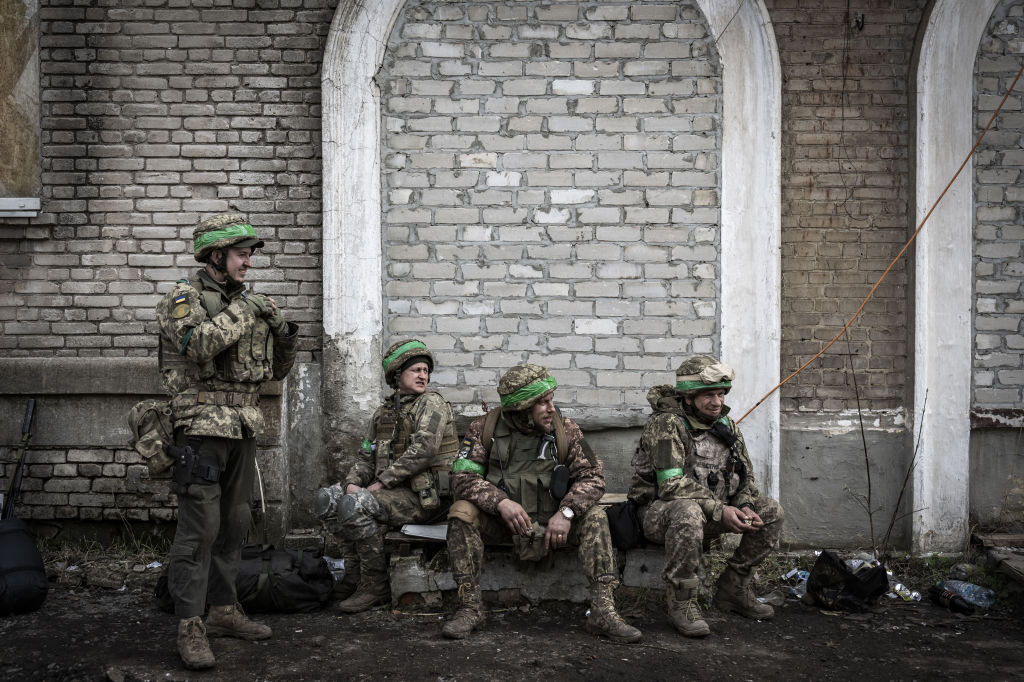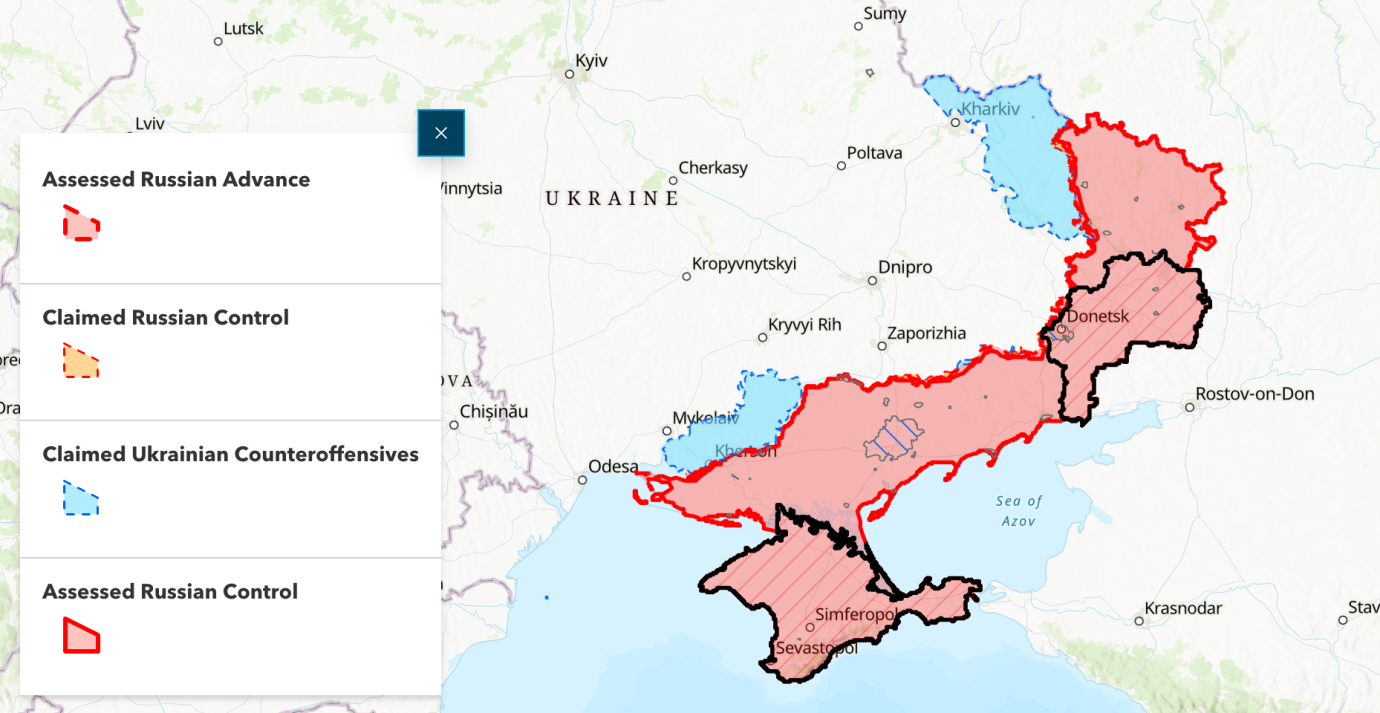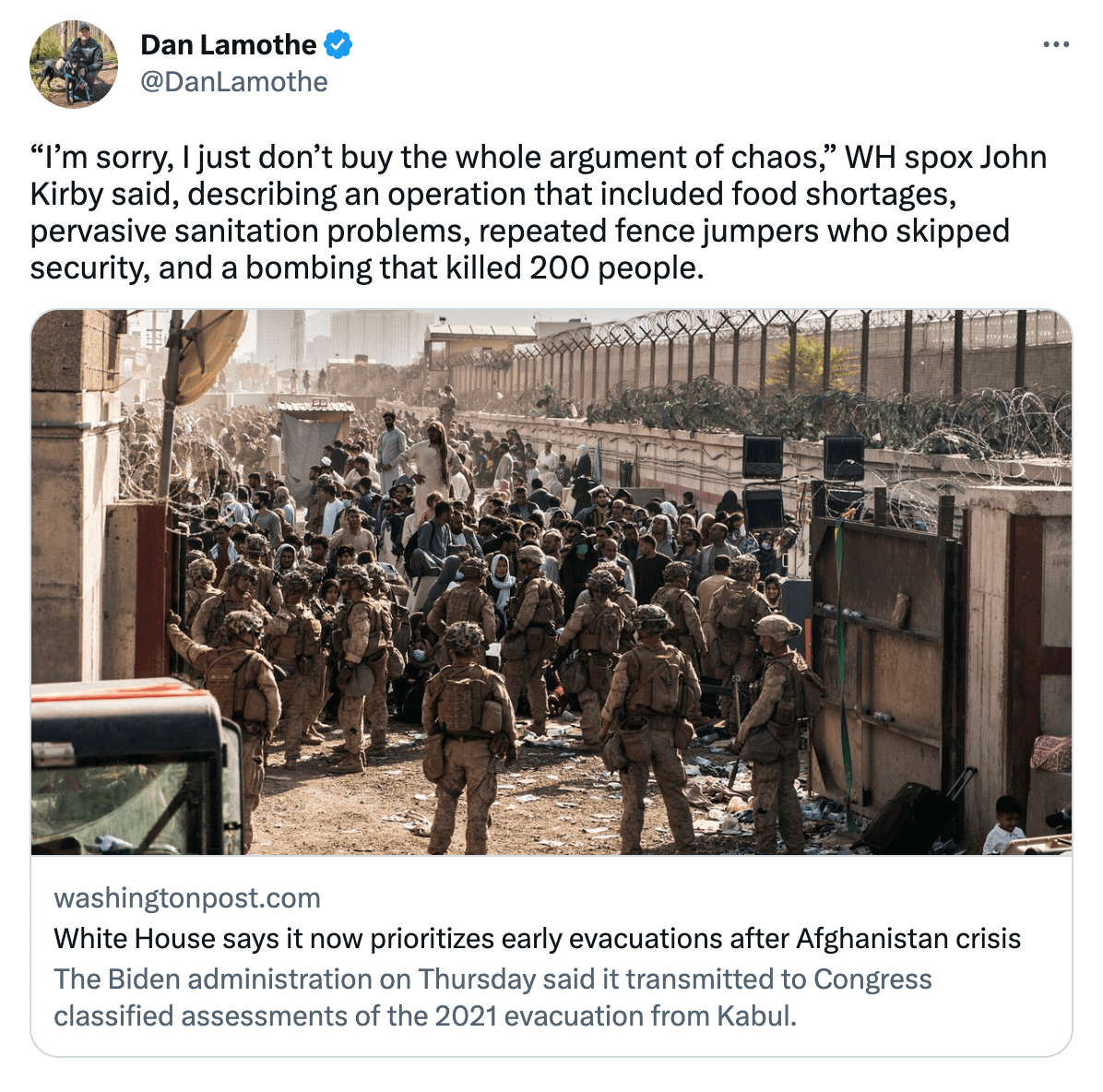Happy Friday! An Australian man is facing charges for allegedly “kidnapping” a platypus from a local waterway, wrapping it in a towel, and introducing it to commuters—a tragic case of show-and-tell gone wrong.
And on a completely unrelated note, Happy Easter to all those celebrating this weekend. He is risen!
Quick Hits: Today’s Top Stories
- Israel launched airstrikes at targets in Gaza and Lebanon early Friday morning after about 35 rockets were fired from Lebanon into northern Israel Thursday afternoon. The cross-border fighting marked the most significant escalation in hostilities between the two countries since the 2006 war. A spokesman for the Israeli military said Hamas was behind the attacks from Lebanon, though no group claimed responsibility.
- Azerbaijani security forces arrested six people accused of planning an Iranian-backed coup to oust Baku’s secular government and replace it with an Islamic, pro-Iran regime. In a separate announcement, the Azerbaijani government said it had expelled four Iranian embassy employees from the country for actions “incompatible with diplomatic status.” Tensions between Iran and Azerbaijan, which share a border, have heightened over Azerbaijan’s relations with Israel and its ongoing conflict with Armenia.
- The National Security Council on Thursday released the Biden administration’s 12-page assessment of the August 2021 withdrawal of U.S. troops from Afghanistan, acknowledging the administration should have warned Americans and Afghan partners earlier about the risk of the Afghan government’s collapse. Culled from several government agency reviews, the document also faults the Trump administration for negotiating with the Taliban to the exclusion of the Afghan government in 2020 and poor withdrawal planning.
- The Supreme Court ruled Thursday—without explanation and over dissents from Justices Samuel Alito and Clarence Thomas—against West Virginia’s request to bar a 12-year-old transgender student from a track team under a state law that mandates participation on girls’ squads be limited to biological women. Meanwhile, the Biden administration proposed a new Department of Education rule Thursday that would allow schools to block some transgender students from competing on teams aligned with their gender identities—but forbid blanket bans. The proposal argues such bans violate Title IX, which prohibits schools receiving federal funding from discriminating on the basis of sex. The rule will have a period of public comment before entering into force.
- ProPublica reported Thursday Supreme Court Justice Thomas has accepted hundreds of thousands of dollars worth of luxury trips over several decades from Republican donor and real estate magnate Harlan Crow—trips Thomas failed to disclose, which the report claims could be in violation of a law requiring justices to disclose most gifts. Senate Judiciary Committee Chairman Dick Durbin, a Democrat from Illinois, argued the report demonstrated “troubling ethical conduct” and vowed his committee would act to create an “enforceable” ethical code for Supreme Court justices. (Disclaimer: Harlan Crow is a minority investor in The Dispatch and a friend of the founders.)
- Judge Juan Merchan—the New York state judge who presided over former President Donald Trump’s arraignment on charges of falsifying business records earlier this week—appears to have made a $15 contribution to President Joe Biden’s presidential campaign in July 2020. Reports from the Federal Election Commission suggest he also made two donations of $10 apiece to progressive organizations. Trump had already complained that Merchan “HATES” him, and will likely push for a different judge to preside over the case.
- The GOP-led House Judiciary Committee on Thursday subpoenaed Mark Pomerantz—a former attorney in the office of Manhattan DA Alvin Bragg—to testify before the committee as part of its investigation into Bragg’s indictment of Trump. Pomerantz resigned after Bragg initially declined to prosecute Trump and later wrote a book recounting some details of the DA’s investigation, revelations which may make it harder for him to claim privilege to resist the subpoena.
- GOP Rep. Byron Donalds of Florida announced Thursday he was endorsing Trump in the 2024 Republican presidential primary, choosing the former president over Ron DeSantis, his state’s governor and a prospective Trump challenger. “There is only one leader at this time in our nation’s history who can seize this moment and deliver what we need,” Donalds said. “To get us back on track, provide strength and resolve, and Make America Great Again.”
- Republicans in the Tennessee House on Thursday voted to expel two Democratic members—Reps. Justin Jones and Justin Pearson—after accusing them of “breaches of decorum” for protesting against gun violence on the House floor after six people were killed in a school shooting in Nashville last week. Jones, who represents a district in Nashville, could be reappointed to his seat in a matter of days, and Pearson, who represents parts of Memphis, has said he will run for his now-open seat.
- The Department of Labor reported Thursday that initial jobless claims—a proxy for layoffs—decreased by 18,000 to a seasonally-adjusted 228,000 claims last week. The Labor Department also updated its seasonal adjustment formula to better reflect pandemic-related labor fluctuations, indicating the labor market—while still tight—is not as historically hot as many weeks of sub-200,000 claim reports indicated.
Battling for Bakhmut

Ukrainian Orthodox Christians preparing to celebrate Resurrection Sunday later this month are doing so in the shadow of death. On Thursday, for example, Zaporizhzhia regional head Yuriy Malashko warned residents to avoid large gatherings and pay attention to air raid sirens as defenders and invaders contest the partially occupied area in southeastern Ukraine. “We should not hope for a lull during the holidays,” he cautioned, per a translation. “The possibility of enemy attacks is not out of the question.”
As the first full winter of the war fades, battle lines in Ukraine are still relatively static. Both sides of the conflict have burned through ammunition and sustained enormous casualties in recent months, only for Russian forces to gain a little ground in the eastern city of Bakhmut. As Ukraine plots its counteroffensive, neither side is seeking negotiations—and Russia has continued making nuclear threats in a transparent bid to deter Western support for Kyiv.
Ukrainian forces have been defending Bakhmut from waves of Wagner Group mercenaries and ill-trained prisoner recruits for months, with Russian leaders willing to send thousands upon thousands of soldiers to an early grave in exchange for incremental territorial gains. “We absolutely are seeing the devastating loss of life that Russia is experiencing, with Wagner forces essentially being thrown into a meat grinder,” a senior Pentagon official told reporters this week. Russian officials previously claimed they almost had Ukrainian forces in the city surrounded, and Wagner founder Yevgeny Prigozhin said Russian forces had, “from a legal point of view,” conquered Bakhmut. He backtracked days later, acknowledging, per a translation, that Ukrainian forces are still fighting back and “not going anywhere.”
But Ukraine has also taken casualties, losing battle-hardened soldiers not easily replaced by inexperienced recruits. Some Ukrainian officers have reported new soldiers arriving at the front lines never having thrown a grenade—and abandoning their positions under fire. Meanwhile, the defenders are burning through artillery rounds faster than they’re being manufactured. Ukrainian President Volodymyr Zelensky acknowledged the ammunition shortages Wednesday, adding Ukrainian forces would withdraw if necessary as Russian troops gain ground. “For me, the most important thing is not to lose our military,” he said. “If there is a moment of even hotter events and the danger that we may lose personnel due to encirclement, there will be appropriate correct decisions on the spot.”
Some Western analysts have questioned the wisdom of Ukraine’s decision to hold out in Bakhmut, but others argue the tradeoff is worth it. “By defending the city itself and the road hub that is in it, they keep their defensive lines short and use the significant advantage that goes to the defender in urban terrain,” Gian Gentile, associate director of the RAND Corporation’s Army Research Division, told The Dispatch. “While the Ukrainians are suffering from reduced artillery expenditures, so are the Russians.”
Regardless of whether Russian forces ultimately take Bakhmut, they haven’t succeeded in rolling up the Donbas with their winter offensive, instead bogging themselves down with costly battles. This map of territorial control from the American Enterprise Institute’s Critical Threats Project and the Institute for the Study of War doesn’t look that different from the one we included last time we updated you.

Ukrainian leaders are reportedly planning a spring counteroffensive—though the details are, of course, secret—and also risk stalling in the face of dug-in Russian defenses. Strikes behind the front lines could help Ukrainian forces avoid that fate, softening the supply chains keeping Russian troops battle-ready. Recent airstrikes on Russian-occupied Melitopol, for example, have reportedly targeted a train depot, military airstrip, and nearby Russian base. Seized early in the invasion, the city in southern Ukraine is located on the land bridge from Ukraine’s mainland to the occupied Crimean Peninsula, which Russia has relied on as a supply route.
Western officials have helped Ukraine plot its moves throughout the war, and the coming counteroffensive is no exception—but a leak this week could throw a wrench in the collaboration. The New York Times reported yesterday classified documents detailing American and NATO plans for Ukrainian troop training and military buildup had been posted on Twitter and Telegram—with what analysts say look like edits falsely playing down Russian casualty numbers and multiplying Ukraine’s losses. The documents were five weeks old and didn’t include details of Ukraine’s counteroffensive plans, but revealed previously secret information about how quickly Ukraine is expending HIMARS mobile rocket systems and other details potentially useful to Russian planners. Ukrainian officials have already been hesitant to share battle plans with Western allies for fear of leaks—and this breach is likely to only amplify their concerns.
Off the battlefield, Russian leaders have continued nuclear saber-rattling, promising to deploy nuclear weapons outside the country’s borders for the first time since the Soviet Union collapsed. Russian President Vladimir Putin said he would send tactical nuclear weapons to Belarus—he didn’t specify when, but said construction of storage facilities would be finished by the end of July, and Belarusian troops have reportedly begun training on a Russian nuclear-capable missile system. This new deployment would happen just as the U.S.’s visibility into Russia’s arsenal is the lowest it’s been in years—Russia recently suspended participation in the New START treaty, which required it and the United States to allow each other to inspect their nuclear stockpiles.
Meanwhile, Ukraine and Russia haven’t gotten perceptibly closer to the negotiating table in recent weeks. Ukrainian presidential official Andriy Sybiha told the Financial Times that once Ukraine takes back territory to the edge of Crimea, it will be “ready to open [a] diplomatic page to discuss this issue,” seeming to imply a softening of Ukraine’s demand that it fully regain the occupied peninsula. But other officials quickly emphasized that’s not the case: “Ukraine will choose the way to bring Crimea back, using political and military means,” Tamila Tasheva, Ukrainian envoy on Crimea, told Politico.
And despite battlefield setbacks, Russia has shown no interest in abandoning further conquest, let alone withdrawing from occupied territory. “The positions of the Russians and the positions of the Ukrainians obviously don’t overlap,” Charles Kupchan, a senior fellow for the Council on Foreign Relations, said at a recent event. “I do believe that we will get to something that resembles a military stalemate later in the year in which both Zelensky and Putin realize that their maximalist aims may not be attainable.”
In the meantime, Western officials are still emphasizing the importance of continued arms shipments to Ukraine. On Tuesday, the Pentagon announced a $2.6 billion drawdown of congressionally authorized military aid. The latest package will include artillery and tank ammunition, mortar systems, rockets, and anti-armor systems, among other materiel. Though the results could take months to trickle down to the battlefield, Western manufacturers have also been stepping up ammunition production, including Soviet-era munitions to match older Ukrainian equipment. Ukrainian state arms producer Ukroboronprom said Thursday it would partner with Polish arms producer Polska Grupa Zbrojeniowa to make rounds for Soviet-era tanks—moving production out of range of Russian airstrikes.
Despite the challenges, many Western analysts are optimistic Ukraine will gain ground with its counteroffensive as Russian forces continue to suffer poor leadership and massive casualties. “They are failing badly at all levels,” Gentile said of the Russian attackers. “If I were a betting man, I would bet big on the possibilities of successful Ukrainian future operations in the weeks and months ahead.”
Worth Your Time
- Wall Street Journal reporter Evan Gershkovich—whom Russia arrested last week and charged with espionage, which can carry a 20-year prison sentence—is currently being held in Moscow’s infamous Lefortovo prison, which has hosted political prisoners like novelist Alexander Solzhenitsyn and former U.S. Marine Paul Whelan. For the Journal, Drew Hinshaw, Joe Parkinson, and Brett Forest document what life might look like for their detained colleague. “Nestled on the leafy side streets of a quiet neighborhood in eastern Moscow, Lefortovo has since the late Czarist era held thousands of accused spies, dissidents, writers, rebels, and all other manner of political prisoners and hardened criminals,” they write. “Soviet detainees held in other prisons would recall their guards issuing a warning: ‘If you keep on being stubborn, we’ll send you to Lefortovo.’ Widely seen as a symbol of the state’s control of the Russian people, the prison today is a pretrial detention center whose inmates are sometimes held for a year or more. In the prison’s roughly 9-by-12-foot cells, a light that shines during the day is made brighter at night. Translucent windows barely a foot long are set above eye level so inmates can only see the Moscow sky.”
- Klaus Teuber, creator of the board game Catan, a civilization-building strategy game, died this week at 70 years old. Ian Bogost argues for The Atlantic Teuber succeeded in creating a game of enduring popularity for the very fact that it was just “tolerable.” “Board games are hostage situations,” he writes. “Board games are terrible. Candy Land is stupid, Scrabble takes too long, Risk is how you learn your dad is an asshole, and Monopoly—let us not speak of Monopoly. The same few products dominated American rugs and tabletops for much of the 20th century. Until Settlers of Catan. Catan is nearly perfect in its aspiration to be good enough. It’s neither too sophisticated for a child nor too boring for a snob. Some people truly love Catan, but everyone likes the game—or maybe no one hates it. That is pretty much as good as it gets for board games. This is Klaus Teuber’s great accomplishment, and I mean that earnestly. One needs a deep supply of both skill and luck to make a game that lots of people love. But creating a game that will be universally indulged is much harder still.”
Presented Without Comment


Toeing the Company Line
- In the newsletters: Nick ponders whether (🔒) Trump could—or should—be pardoned for his alleged hush-money payments to Stormy Daniels if convicted.
- On the podcasts: Jonah is joined by A.B. Stoddard for some rank Trump indictment punditry, and Sarah, Jonah, and special guest Ruy Teixeira break down all the week’s top stories.
- On the site today: Charlotte looks at the Middle East’s responses to Iran’s nuclear advances and Kevin considers whether the Texas Lottery is delivering on its promised economic benefits.
Let Us Know
Do you have high hopes for the rumored Ukrainian counteroffensive? Is the end of Russia’s occupation in Crimea a realistic goal?








Please note that we at The Dispatch hold ourselves, our work, and our commenters to a higher standard than other places on the internet. We welcome comments that foster genuine debate or discussion—including comments critical of us or our work—but responses that include ad hominem attacks on fellow Dispatch members or are intended to stoke fear and anger may be moderated.
With your membership, you only have the ability to comment on The Morning Dispatch articles. Consider upgrading to join the conversation everywhere.